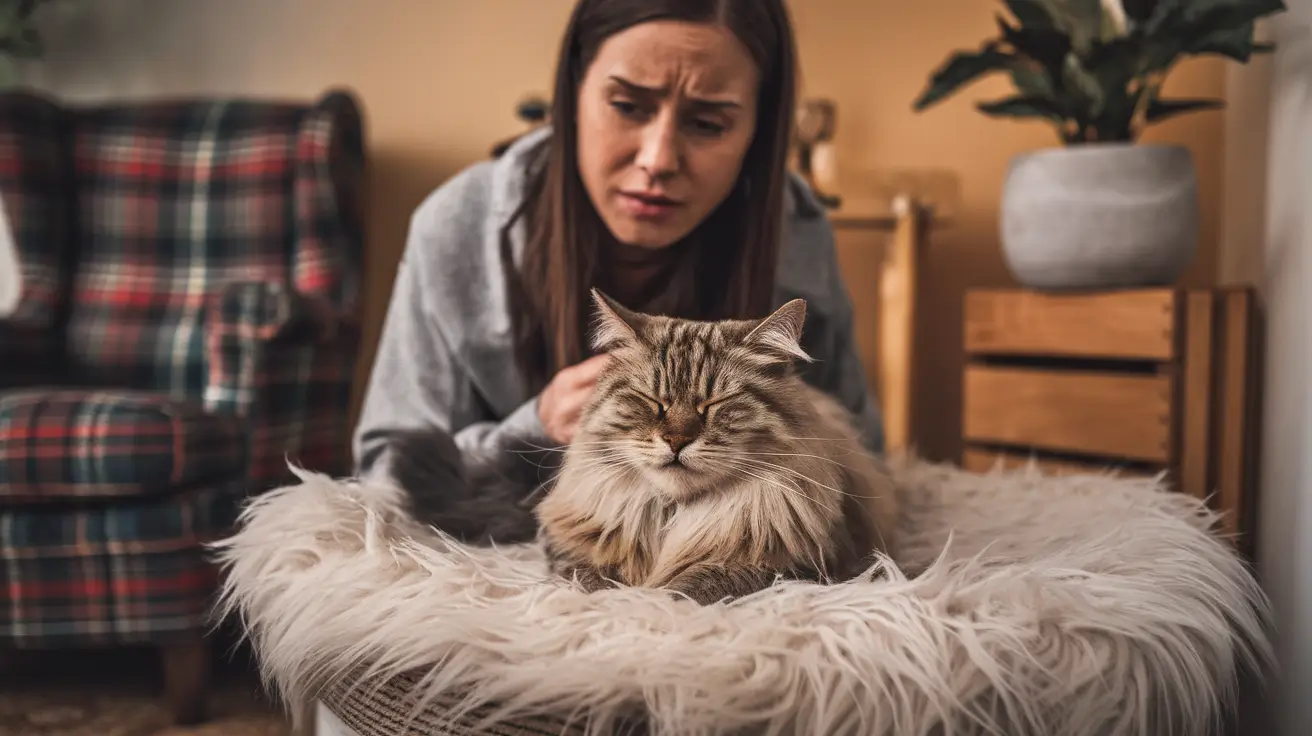Introduction to Feline Gastrointestinal Health
The gastrointestinal health of cats is a critical aspect of their overall well-being, with diarrhea being a common symptom that many cat owners encounter. Recognizing the importance of a healthy digestive system in cats is essential, as it plays a vital role in nutrient absorption and overall vitality. Diarrhea, though often dismissed as a minor issue, can indicate a range of underlying health problems, from benign to severe, thus warranting a closer examination of its causes and implications.
The Dual Nature of Diarrhea: Acute vs. Chronic
Understanding the nature of diarrhea in cats involves distinguishing between acute and chronic forms, each requiring different approaches for effective management.
Acute Diarrhea
Acute diarrhea is characterized by its sudden onset and typically resolves within a short period, generally up to 14 days. Common causes of acute diarrhea include infectious agents such as bacteria, viruses, and parasites, as well as dietary indiscretions like ingestion of toxic substances or table scraps. Emotional stress and anxiety can also contribute to acute gastrointestinal upset, highlighting the importance of addressing these issues promptly to prevent further complications.
Chronic Diarrhea
In contrast, chronic diarrhea persists for more than 14 days and often signals more serious health concerns. Causes can range from resistant infections and chronic inflammatory diseases like inflammatory bowel disease (IBD) to poorly managed metabolic disorders such as diabetes or hyperthyroidism. Chronic diarrhea poses significant health risks, potentially leading to life-threatening complications if left untreated, and often requires comprehensive diagnostic testing to uncover the underlying cause.
Recognizing Symptoms: The Signs of Illness in Cats
Detecting subtle changes in a cat's behavior and habits is crucial for early identification of health issues, including diarrhea.
Changes in Eating and Drinking
Monitoring a cat's appetite and hydration is vital, as shifts in eating or drinking habits can indicate underlying health problems. A decrease in interest in food or water may signal gastrointestinal distress or other metabolic issues.
Activity and Energy Levels
Alterations in a cat's energy levels, such as lethargy or hyperactivity, can be indicative of illness. Observing these changes can prompt timely veterinary intervention.
Defecation and Urination Patterns
The consistency, color, and frequency of a cat's stool are key indicators of their digestive health. Diarrhea is never normal and should be investigated promptly. Additionally, changes in urination habits, such as increased frequency or altered urine color, may suggest kidney disease or metabolic disorders.
Common Causes of Diarrhea in Cats
Diarrhea in cats can arise from various factors, categorized into infectious, dietary, metabolic, and environmental causes.
Infectious Agents
Pathogens such as bacteria, viruses, and parasites are common culprits of diarrhea. These infectious agents can disrupt the normal functioning of a cat's digestive system, leading to gastrointestinal upset.
Dietary Influences
Food allergies, sensitivities, and sudden changes in diet can provoke diarrhea in cats. It is essential to introduce new foods gradually to prevent digestive disturbances.
Metabolic and Endocrine Disorders
Conditions like diabetes and hyperthyroidism can manifest as diarrhea, highlighting the interconnectedness of a cat's endocrine and digestive systems.
Environmental and Stress Factors
Emotional stress and environmental changes can impact a cat's digestive health, leading to diarrhea. Creating a stable and stress-free environment is crucial for maintaining gastrointestinal health.
Diagnostic Approaches to Cat Diarrhea
Veterinarians employ various diagnostic methods to determine the cause of diarrhea in cats, ensuring effective treatment.
Fecal Testing
Fecal tests, including fecal flotation, antigen testing, and culturing, are used to identify infections or inflammatory conditions affecting the digestive tract.
Blood Work and Imaging
Blood tests and imaging studies, such as abdominal ultrasounds and radiology, help diagnose metabolic disorders and structural issues that may be causing diarrhea.
Treatment Strategies for Diarrhea
Treatment for cat diarrhea varies depending on whether the condition is acute or chronic, with a focus on medications, dietary adjustments, and supportive care.
Treatment for Acute Diarrhea
Immediate treatment options for acute diarrhea include oral antibiotics to address bacterial infections, rehydration techniques to prevent dehydration, and dietary recommendations to soothe the gastrointestinal tract.
Managing Chronic Diarrhea
Long-term treatment strategies for chronic diarrhea involve medications for inflammation, such as corticosteroids, and immune support through immunosuppressants. Addressing any underlying infections with deworming treatments is also crucial.
Prevention: Keeping Your Cat Healthy
Preventing diarrhea involves proactive measures in maintaining a cat's health through regular veterinary care, dietary management, and environmental stability.
Regular Veterinary Check-ups
Routine vet visits play a vital role in the early detection and management of potential health issues, ensuring that cats remain healthy and free from gastrointestinal disturbances.
Dietary Considerations
Maintaining a consistent diet and avoiding sudden introduction of new foods is essential to prevent gastrointestinal upset. Refraining from feeding cats human foods or rich treats is also advised.
Caring for Your Cat at Home
Providing proper care during a cat's recovery from diarrhea is crucial for their well-being and future health.
Home Recovery Strategies
Creating a quiet and comfortable environment for a recovering cat is important. Ensuring they have access to their needs, such as a litter box and bedding, helps facilitate a smooth recovery.
Importance of Follow-Up Visits
Follow-up veterinary appointments are essential to ensure complete recovery and address any lingering health issues, even if the cat appears to be improving.
Conclusion: The Role of Cat Owners in Feline Health
Cat owners play a pivotal role in monitoring their pets' health and seeking veterinary assistance when needed. By understanding the causes of diarrhea, recognizing subtle signs of illness, and following appropriate treatment and prevention strategies, cat parents can help their feline friends maintain optimal health and avoid life-threatening complications. Regular veterinary consultations and a stable home environment are key to ensuring the long-term well-being of cats.






